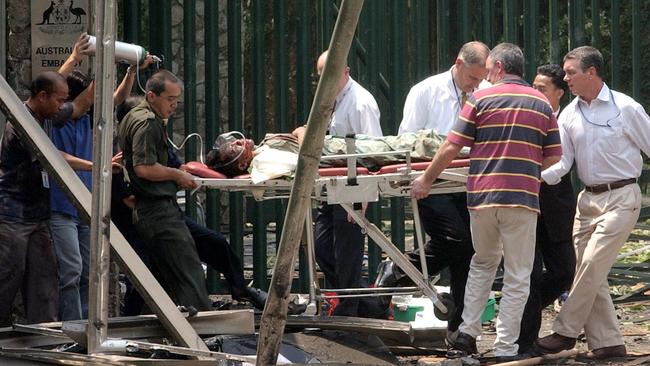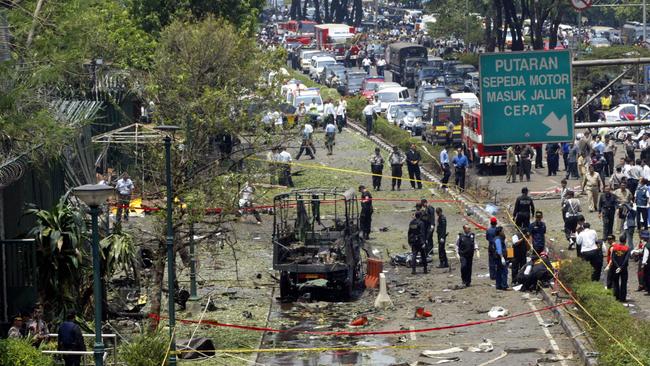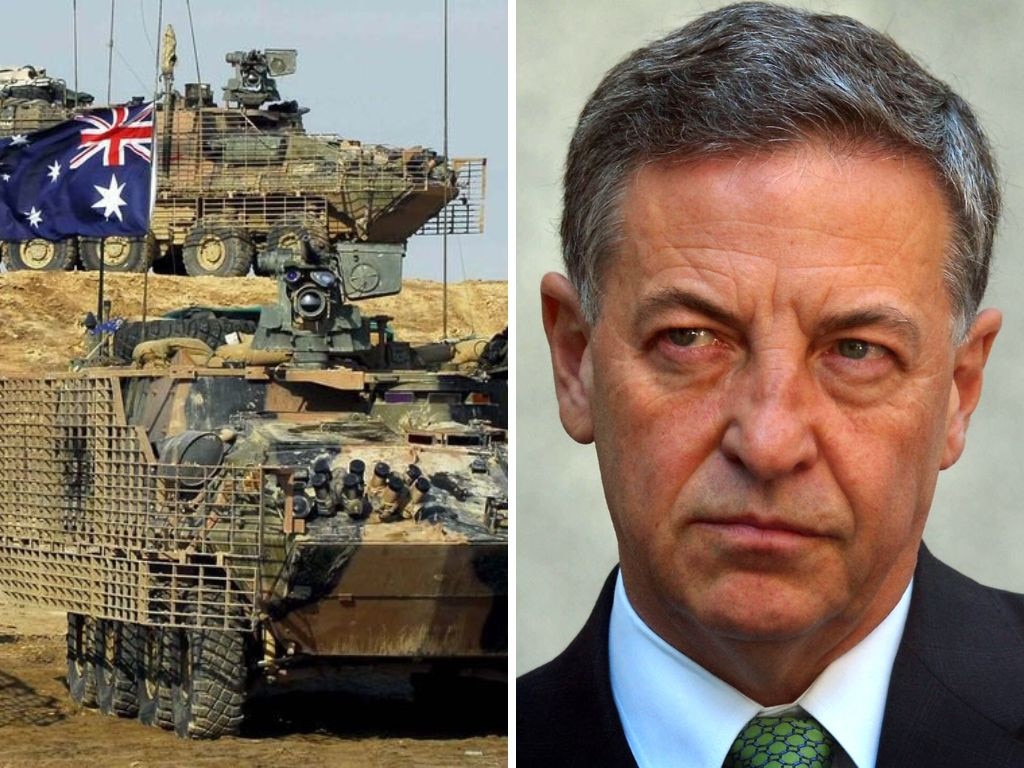2004 Cabinet Papers: Rush to lift embassy security after Jakarta blast
A suicide bomber drove a delivery van loaded with a bomb to outside the Australian embassy, where it exploded, injuring 150 people and killing almost a dozen people.

A “number” of Australian embassies and missions were “extremely vulnerable to a Jakarta-style bomb”, the Howard government was advised in the immediate aftermath of the terrorist attack on Australia’s embassy to Indonesia in 2004, newly unveiled cabinet papers reveal.
The bombing, which injured more than 150 people and killed almost a dozen, but no consular staff, was perpetrated by militant Islamic group Jemaah Islamiah.
A suicide bomber drove a small delivery van loaded with a bomb to outside the Australian embassy, where it exploded.
The blast and the security flaws it exposed set off a rush inside cabinet to strengthen security at other Australian embassies and consulates around the world.
Then-foreign minister Alexander Downer recommended relocation of Australia’s embassies in Amman, Jordan; Bangkok, Thailand; Kuala Lumpur, Malaysia; and Moscow, Russia, which were deemed sites with a significant risk of politically motivated violence.
Austrade sought a relocation of its consulate in Milan, Italy.

The National Security Committee, two days after the bombing, said it thought the “close and effective counter-terrorist co-operation between Australia and Indonesia was a reason that the embassy had been targeted”.
Embassy relocation and construction already under way at the time were reconsidered and in some cases extra funding and time were requested to satisfy new security requirements.
Various security upgrades were also requested for embassies in areas with risks of politically motivated violence: Dhaka, Harare, Islamabad, Jakarta, Nairobi, Riyadh, Ankara, Manila, Singapore, Bandar Seri Begawan, Beirut, Cairo and Tel Aviv.
Separately, newly unsealed documents about the Regional Assistance Mission to Solomon Islands, in which Australia and New Zealand aided the Solomon Islands to quell nationalist militias in the archipelago, reveal the tenuous relationship between the two governments at the time.
“Cabinet has displayed a tendency to ignore what it knows RAMSI wants, agreeing in January to a pay increase for MPs and public servants,” Mr Downer briefed the cabinet in March 2004.
He said it “underlined the fundamental lack of appreciation amongst most in cabinet of the continuing precariousness of the Solomon Islands’ economic circumstances.”
By June, the problem appeared to have exacerbated.
“Prime minister (Allan) Kemakeza remains helpful, but beyond him there are few signs of a genuine commitment to reform,” Mr Downer briefed the cabinet on 16 June 2004.
“While public support is strong, pockets of anti-RAMSI sentiment in cabinet have emerged.
“RAMSI’s investigation of corruption has implicated a number of ministers, several of whom may face arrest after the current session of parliament concludes.”
The brief detailed one incident in which RAMSI’s economic reform unit for Solomon Islands almost failed to get cabinet approval but for “strenuous representations by RAMSI and prime minister Kemakeza’s direct intervention”.






To join the conversation, please log in. Don't have an account? Register
Join the conversation, you are commenting as Logout